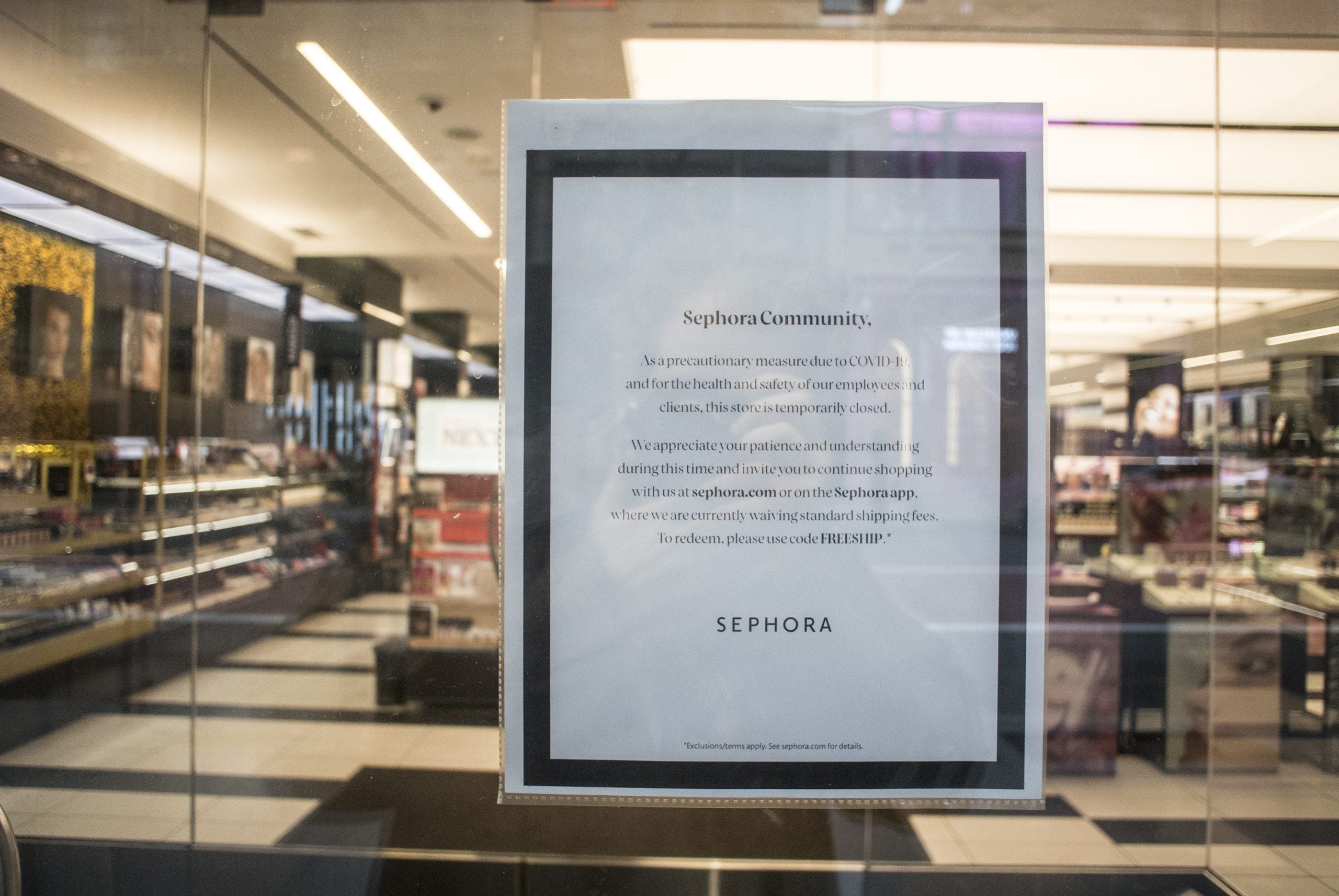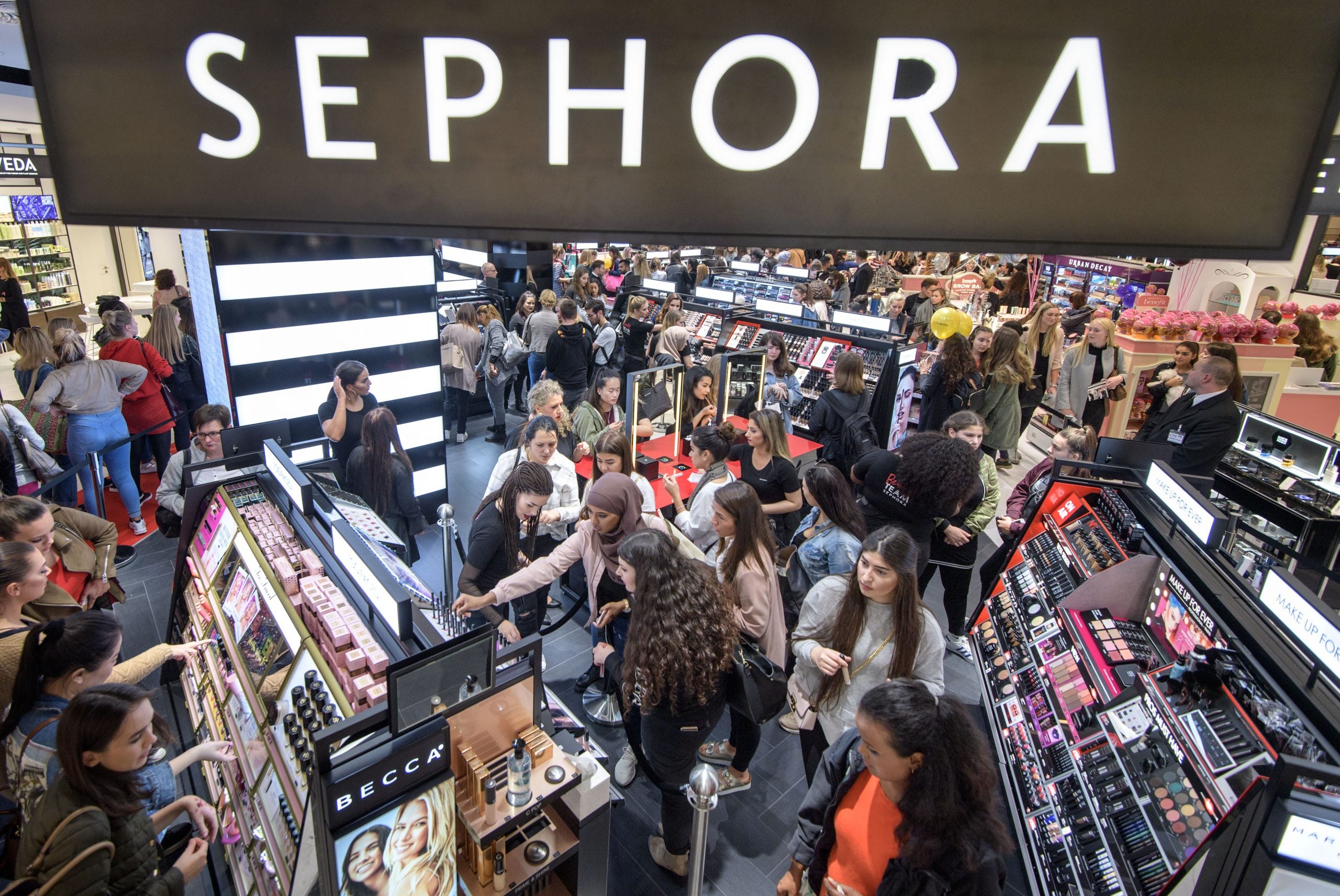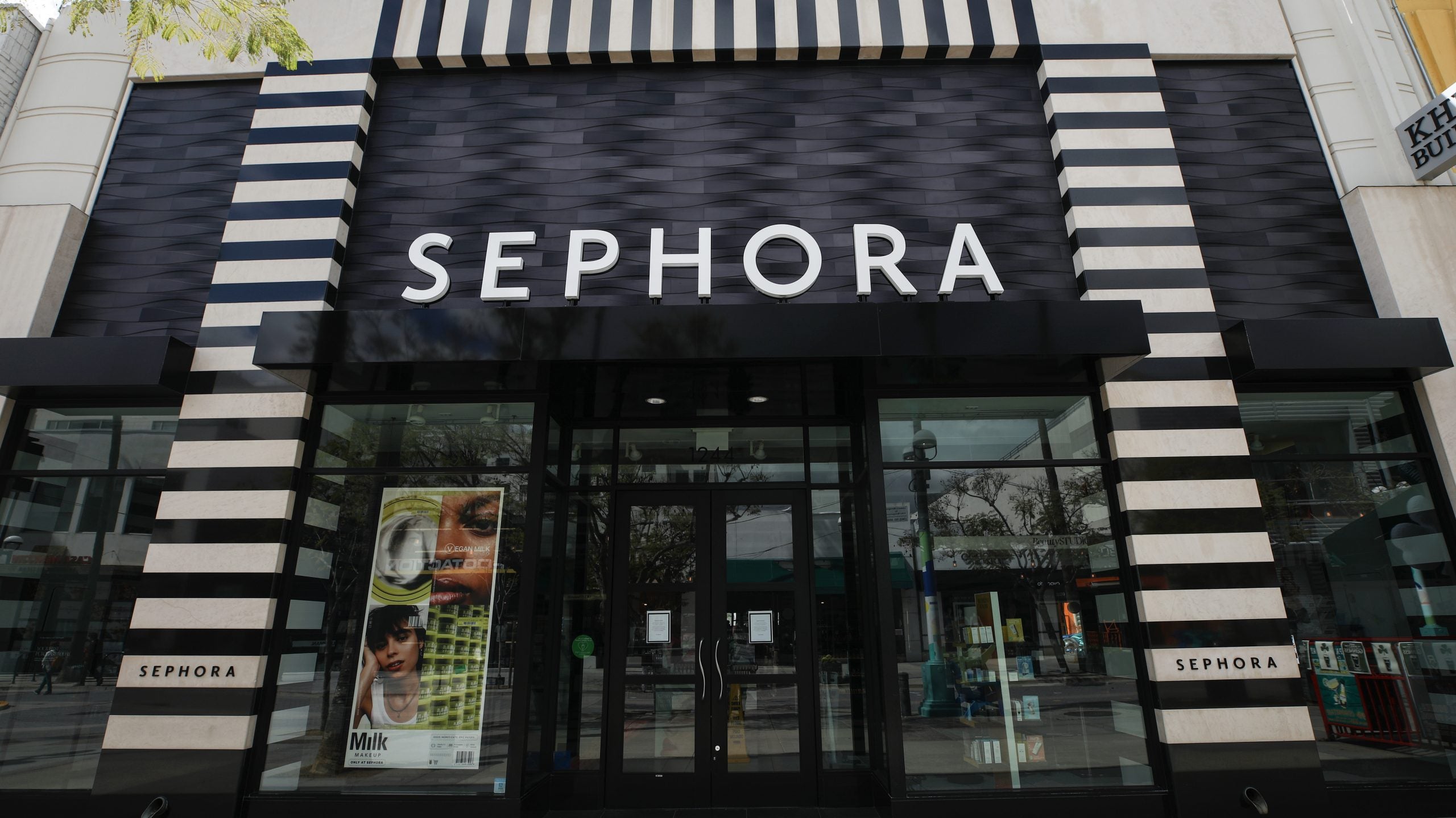The beauty industry is reeling from mass layoffs that rocked retail giant Sephora last week, the latest in a number of retail downsizings at stores like Bloomgingdales, Macys and H&M.
Immediately following the layoffs, Sephora put out a statement to the public saying that the impacted employees were seasonal and part-timers who served limited hours. They also said that those employees were offered severance packages and the remaining 9000+ people on their workforce will be paid and receive existing benefits through May.
It was a very standard statement, filled with the type of language that you’d expect from a giant retailer when it’s in thrust into the spotlight in a negative way. What wasn’t expected was the support promised to its current employees given the social media reactions from those laid-off. There were many questions.
And for small beauty businesses, it left their leaders wondering if they stood a chance to remain afloat if a large retailer like Sephora had to make such extensive cuts. Even more daunting still is the question of what this means for the brands that rely on Sephora to connect with consumers and make their money.
ESSENCE reached out to Sephora to get more candid answers to simply get to the heart of exactly what the heck is going on inside the company. Sephora’s Chief Marketing Officer Deborah Yeh answered some of the questions we had (via email), while a Sephora employee and a brand specialist who works with the retailer got candid about their personal experiences.
Yeh says that it all started with the decision to close their doors, which the company felt was necessary to protect the health and safety of the Sephora community. Initially the closure was supposed to go through April 3, but as they took stock of the conditions in North America, she says, they realized they’d need to keep doors closed for longer.

“[It] was the right thing to do, but it forced us to make even tougher decisions,” tells ESSENCE. “We’re a retail business with rent, payroll, maintenance, and operating costs that do not stop for Coronavirus. We needed to face the reality of the situation, so we could be in the strongest possible position to welcome our clients and staff back when the time comes.”
While other businesses, including The Cheesecake Factory, Mattress Firm and Subway have opted to withhold or reduce their rent payments to offset the costs of closures, Sephora reps did not confirm that it’s the route they’re taking. They are also choosing not impose pay cuts or furlough their leadership, unlike several retailers around the country. Yeh assured that all actions taken across all levels of the business are outlined in the letter to the community. The brand has been able to retain more than 80 percent of its U.S. workforce and it has retained all full-time store employees as well as most tenured and experienced part-time employees.
“We have retained our corporate employees and redeployed efforts to support our digital business. Additionally, we have increased pay for our distribution center employees by $2 per hour for all time worked during the closure,” she ensures.
The U.S. store and corporate employees who remain with the business are being paid at 100 percent their normal base salary and will receive all of their benefits through late May according to Sephora. In addition, their executives, corporate and store employees across the U.S. will participate in a required 6-day PTO over the next two months as an additional cost savings measure. And as an employee herself, Yeh understands the hurt feelings of those that were let go.
“It was heartbreaking,” she says.”We’re not the only retailer to have to make some very difficult decisions, but Sephora is unique in its strong, passionate culture. This was certainly news we never wanted to deliver. But for those who were negatively impacted, social media is so much faster than our managers’ ability to call each employee up one on one. Over the ensuing days we were able to reach everyone, but it took some time and care.”
ESSENCE also talked to Patricia Fox, a three-year tenured part-time beauty advisor for a Sephora store in Philadelphia. It’s important to note that she had to disclose our questions with her district manager and be granted permission to speak with ESSENCE. She empathizes with her colleagues affected by the layoffs, but says that because her district supervisor kept them anonymous for their privacy, so she doesn’t know who won’t be there when she gets back. She is aware of the backlash that the company received from some angry former employees.
“The most I have been made aware about employees affected by the mass layoff is the opportunity to reapply for their positions, says Fox. “I haven’t heard anything about further layoffs. Almost all communication comes from Corporate and is shared by store directors.”
She says that the company has been transparent about their plans for reopen, and that her district holds Zoom meetings and group texts to facilitate discussions. And while this has all been a bit unsettling, she says that she’s cooking more and spending less so things have sort of leveled out for her. But she does think that retailers could put some programs in place in order to prevent these sorts of sweeping losses for their employees.
“Moving forward, I hope all retailers truly consider how essential their hourly employees are to the operation of their business!” Fox continued. “I do not own a multi-billion-dollar company, yet. However, if I were a high revenue retailer, I would urge timely performance evaluations and honest career development plans. I feel these simple considerations would support employees’ real time hourly wage aligning their growth and gross at a promised pace. I also think there should be essential financial seminars offered to employees.”
“Most times, people work and have faith only in their group benefits. Offering more options and in-depth information outside of a 401k contribution election may help with financial preparedness for unforeseen crises—alleviating both employer and employee.”
But Lianne Farbes, a beauty brand specialist, says that it’s more than just retailers, and it goes beyond hourly employees being affected.
“It’s not even just Sephora. It’s all the department stores and stuff,” she tells ESSENCE. “All of my friends, everybody that I know that works in retail beauty, whether you work for a brand or for a store, nobody’s working.”
Farbes, who works for a beauty brand that sells out of retailers such as Sephora, saw first-hand how the stores were affected just before they were forced the close their doors entirely.
“Going from seeing hundreds of people a day to seeing one person a day, it’s just weird. It’s the strangest thing ever,” she says. “Some brands fired everybody. There are some really big brands out there that are doing people super dirty. These are unprecedented times and people, I think, are making really poor decisions because they don’t know what to do because we’ve never been here before. So rational thinking goes out the window.”

Farbes says that many brands thought that the stay-at-home orders wouldn’t last very long. But she saw the writings on the wall. And as a large portion of brand representatives doing sales and product education are freelance, she knew that her and her colleagues would be hugely impacted by the shutdowns.
The brand she works for has been doing digital trainings, Q&A sessions and Zoom calls to keep their team engaged while their office is closed. And at the time that we spoke to her she hadn’t been dismissed from her position, but she understands that things can change quickly, and that small indie brands are struggling right now. And with the uncertainty of how long the quarantine and shutdowns will last, she understands the tough decisions being made day to day by the large retailers that might otherwise seem untouchable.
“People are like, ‘Well, Sephora is not hurting for money.’ Listen, it doesn’t matter if they’ve got $100 million dollars. If there’s no more money coming in, that 100 million is going to go fast,” Farbes finished. “I can’t be mad at a retailer for wanting to try and save their bottom line.”
But Sephora seems to be taking inventory of how this pandemic is affecting the brands on its shelves and that sell on sephora.com. Company leaders are working to support brand partners while they work to secure future employment for its own workforce. It’s a large financial commitment that could be the saving grace of a small emerging brand.
“A pandemic affects all types of companies—large and small, retailer and manufacturer,” says Yeh. “We remain fully committed to our brand partners and have been working closely with the brand community throughout this crisis by maintaining our current payment terms to ensure brands are supported during this time. We’re also still fully supporting brand launches and news.”
“We’re taking many of the campaigns we were planning to run for brands in store and bringing them online. And we’re sharing best practices that we’ve learned while navigating this pandemic with our brand partners,” she finished. “Our goals are fully aligned here—to ensure that all of our brands, from the big global names to the indie founder-led brands—can continue to thrive.”

